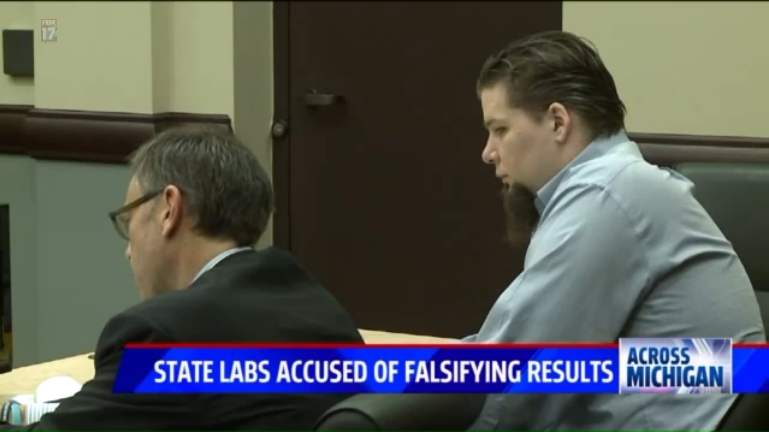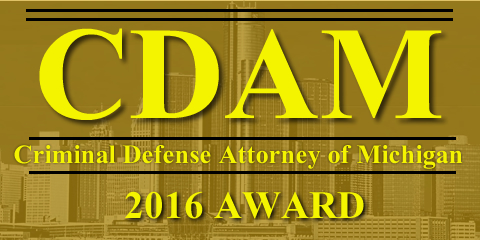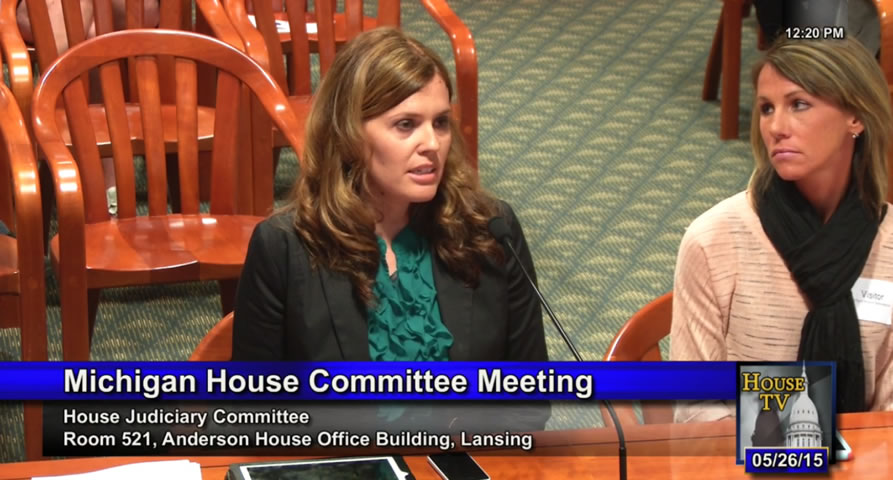
Oct 1, 2017 | Blog, Medical Marijuana Attorney Michael Komorn, Michigan Medical Marijuana Association
On September 14, 2016, the Michigan Legislature succeeded in passing several medical marihuana dispensary legislation acts.
The acts were signed by Michigan Republican Governor Rick Snyder on September 22, 2016
Komorn Law can assist you with clarification and utilization of these new regulations and protections.
To learn more click the link below
Komorn Law Business Development

Aug 21, 2017 | Blog, Michigan Medical Marijuana Act
MICHIGAN MEDICAL MARIHUANA ACT
Initiated Law 1 of 2008
AN INITIATION of Legislation to allow under state law the medical use of marihuana; to provide protections for the medical use of marihuana; to provide for a system of registry identification cards for qualifying patients and primary caregivers; to impose a fee for registry application and renewal; to make an appropriation; to provide for the promulgation of rules; to provide for the administration of this act; to provide for enforcement of this act; to provide for affirmative defenses; and to provide for penalties for violations of this act.
History: 2008, Initiated Law 1, Eff. Dec. 4, 2008 ;– Am. 2016, Act 283, Eff. Dec. 20, 2016
| Link |
Statute |
MICHIGAN MEDICAL MARIHUANA ACT (333.26421 – 333.26430)
Initiated Law 1 of 2008 |
| Document |
Type |
Description |
| Section 333.26421 |
Section |
Short title. |
| Section 333.26422 |
Section |
Findings, declaration. |
| Section 333.26423 |
Section |
Definitions. |
| Section 333.26424 |
Section |
Qualifying patient or primary caregiver; arrest, prosecution, or penalty prohibited; conditions; privilege from arrests; presumption; compensation; physician subject to arrest, prosecution, or penalty prohibited; marihuana paraphernalia; person in presence or vicinity of medical use of marihuana; registry identification card issued outside of department; sale of marihuana as felony; penalty; marihuana-infused product. |
| Section 333.26424a |
Section |
Registered qualifying patient or registered primary caregiver; arrest, prosecution, or penalty, or denial of right or privilege prohibited; conditions. |
| Section 333.26424b |
Section |
Transporting or possessing marihuana-infused product; violation; fine. |
| Section 333.26425 |
Section |
Rules. |
| Section 333.26426 |
Section |
Administration and enforcement of rules by department. |
| Section 333.26427 |
Section |
Scope of act; limitations. |
| Section 333.26428 |
Section |
Defenses. |
| Section 333.26429 |
Section |
Failure of department to adopt rules or issue valid registry identification card. |
| Section 333.26430 |
Section |
Severabilty. |
MEDICAL MARIHUANA FACILITIES LICENSING ACT
Act 281 of 2016
AN ACT to license and regulate medical marihuana growers, processors, provisioning centers, secure transporters, and safety compliance facilities; to provide for the powers and duties of certain state and local governmental officers and entities; to create a medical marihuana licensing board; to provide for interaction with the statewide monitoring system for commercial marihuana transactions; to create an advisory panel; to provide immunity from prosecution for marihuana-related offenses for persons engaging in marihuana-related activities in compliance with this act; to prescribe civil fines and sanctions and provide remedies; to provide for forfeiture of contraband; to provide for taxes, fees, and assessments; and to require the promulgation of rules.
History: 2016, Act 281, Eff. Dec. 20, 2016 Compiler’s Notes: Enacting section 2 of Act 281 of 2016 provides:”Enacting section 2. The legislature finds that the necessity for access to safe sources of marihuana for medical use and the immediate need for growers, processors, secure transporters, provisioning centers, and safety compliance facilities to operate under clear requirements establish the need to promulgate emergency rules to preserve the public health, safety, or welfare.”
MARIHUANA TRACKING ACT
Act 282 of 2016
AN ACT to establish a statewide monitoring system to track marihuana and marihuana products in commercial trade; to monitor compliance with laws authorizing commercial traffic in medical marihuana; to identify threats to health from particular batches of marihuana or medical marihuana; to require persons engaged in commercial marihuana trade to submit certain information for entry into the system; to provide the powers and duties of certain state departments and agencies; to provide for remedies; and to provide for the promulgation of rules.
History: 2016, Act 282, Eff. Dec. 20, 2016
| Act 282 of 2016 |
Statute |
MARIHUANA TRACKING ACT (333.27901 – 333.27904) |
| Document |
Type |
Description |
| Section 333.27901 |
Section |
Short title. |
| Section 333.27902 |
Section |
Definitions. |
| Section 333.27903 |
Section |
Statewide monitoring system; use as integrated marihuana tracking, inventory, and verification system; requirements; rules; bids; violation; termination of contract. |
| Section 333.27904 |
Section |
Confidentiality; exemption from disclosure. |
Other Interesting Stuff ?
| Act 111 of 1998 |
Statute |
THE HUMAN CLONING FUNDING PROHIBITION ACT (333.26401 – 333.26406) |
| Act 47 of 2004 |
Statute |
MEDICAL RECORDS ACCESS ACT (333.26261 – 333.26271) |
| Act 345 of 2014 |
Statute |
RIGHT TO TRY ACT (333.26451 – 333.26457) |
| Act 255 of 2006 |
Statute |
METHAMPHETAMINE LABORATORY (333.26371 – 333.26373) |

Aug 4, 2017 | Blog, Michigan Medical Marijuana Act, News
Detroit — It’s been a year since Detroit put laws in place to regulate medical marijuana shops and as of today, only two have been approved to operate.
The strict set of zoning and licensing requirements adopted in 2015 by the City Council went into effect last March. That’s when all shops — existing and new — seeking to operate lawfully were required to apply online, submit plans, meet rules and obtain licensing, or face closure.
The city has received more than 260 applications for Medical Marijuana Caregiver Centers since that time. But new figures released by the city this week reveal only two prospective centers cleared the required hurdles.
Green Cross on West Eight Mile opened in mid-February as Detroit’s first licensed center. Its operators were the first to apply under the new law and completed the “vigorous” process Feb. 3, said manager Simon Berro.
“We went to the city. We listened to what they said. We followed their rules,” said Berro of the center, operated by the Detroit Caregivers Center Association. “We took all precautions, and it was a vigorous process, but nonetheless, it worked out at the end.”
The Green Genie on McNichols on the city’s west side also has its license. The building and its signage indicate the facility is open, but no staff was there Thursday afternoon.
Meanwhile, 136 shops have been closed down, padlocked and sealed with bright orange stickers by the city’s Building Safety Engineering & Environmental Department. And 115 others remain in various stages of the application process, according to the building department, which has enforcement authority under the code.
“There’s a lot of growing pains that exist,” said Jamaine Dickens, a spokesman for Top Dollar Holdings, which operates a caregiver center, 420 Dank on Gratiot. “It’s been a learning experience for all involved from the city and most certainly from the industry.”
The center, Dickens said, had been in operation prior to the ordinances and has done everything “by the letter of the law.” Top Dollar Holdings is one of only a few operators so far granted a variance by the city’s zoning board after it was deemed too close to a church and liquor store. Its center is now working to obtain its business license, Dickens said.
The rules, aimed at bringing order to what had been an unregulated practice, have cleared the way for Detroit to shut down so-called pot shops failing to seek compliance under the ordinance or dispensing medical marijuana in zones prohibited under federal, state and city statutes.
The federal Drug Free School Zone Act prevents marijuana from being delivered, sold or manufactured within 1,000 feet of a school. State law also factors libraries into the rule. The city’s zoning regulations cover educational institutions and goes beyond that, prohibiting shops from operating near child care centers, arcades and outdoor recreation facilities.
There were 283 dispensaries throughout the city when Detroit began accepting applications under the new laws on March 1, 2016.
Detroit Corporation Counsel Melvin Butch Hollowell said each was sent a letter, warning they were “operating at their own risk” until fully licensed. The shops were also provided a 30-day window to submit applications before enforcement officially began.
Hollowell and the zoning code note shops in operation prior to the laws without licenses are able to continue serving patients so long as they have put in “good faith” applications. The operators who haven’t top a priority list for closure, Hollowell said.
Some medical marijuana advocates contend the city’s zoning laws are unfairly restrictive and applications are being processed too slowly, and they fear patients will suffer.
Robin Schneider, executive director of the National Patient Rights Association, said she’s disappointed with the lack of progress a year in.
“(Detroit) has the most exclusionary zoning practices of anything I’ve ever seen in the state,” said Schneider, who is concerned some applicants have been improperly turned down because they are located near long-closed former schools or child care buildings. “I think the fact that patients still do not have access to licensed facilities is a disservice to patients.”
The zoning legislation will permit about 50 shops overall. Still, Hollowell doesn’t think it will lead to hardships.
“There will be an appropriate number of locations that will be made available for people to sell the medicine,” he said. “We just want to make sure that as they are opened, they are opening in an orderly fashion and meeting needs of patients required for treatment.”
Hollowell added the small number of shops to complete the approvals so far shows “diligence” in the stringent requests for zoning, site and security planning, tax and health code clearances and licensing.
“It’s a new field,” he said. “It’s being processed well.”
Under the code, centers must operate in heavily commercial or industrial areas and are barred from locating in neighborhoods.
That’s welcomed by by Cortez York, who lives off Eight Mile on the city’s east side where centers along the main roadway have been plentiful. The 24-year-old said the marijuana centers “bring a lot of activity.”
Some of it has subsided since the city’s new laws have gone into place, he said.
“Some of them are taking the signs away. I see less cars pulling up all day and pulling out,” he added. “The neighborhood looks more peaceful.”
Hollowell said a mix of about 150 newer and older shops operating in Detroit are still facing closure because they haven’t made bids to legally operate. The city’s Law Department on Thursday said it estimates another 70-80 shops with applications pending are also operating.
About 80 others have been shuttered by neighborhood police officer and building inspector enforcement teams, and 55 closed after Detroit’s legal department filed nuisance abatement lawsuits in Wayne County Circuit Court.
Under city ordinance, centers must submit specific documentation and undergo a site plan review, public hearing over land use and secure a certificate of occupancy, business licensing and inspections, among other things. The requirements also cover site and security plans, insurance, lighting and parking specifications. Licenses must be renewed annually.
Centers can appeal to the city’s Board of Zoning Appeals for variances if they are turned down for being too close to schools, churches, liquor stores or other controlled uses. Challenges beyond that can be argued in circuit court.
Nathan Oakes, managing partner of Greener Crossing, a caregiver center on the city’s east side, said he supports the strict laws, saying they help rid the city of facilities that aren’t running honest business.
Oakes, a U.S. Marine Corps. veteran, said he got into the business to ensure safe access for veterans. He opened the center in October 2015 on a heavily industrial section of Hoover, off Eight Mile.
Oakes’ center is among those the city has allowed to continue serving patients while completing the application process. He’s endured the various steps and is obtaining his certificate of occupancy and inspections. He hopes to get his business license by spring.
“I find (the city) to be strict. I think that’s a good thing,” he said. “There’s a lot of fly-by-night organizations trying to just grab money in this business. Then, there’s the legitimate operations serving the patients. I think the ordinance helps distinguish between those two.”
But Andre Godwin, who represents the Sons of Hemp, a group of herbalists, caregivers and dispensary owners, said the laws have left many in limbo and are “making it bad for everyone.”
Godwin, who formerly filed a legal challenge to the new law, said the city is being “too intrusive” and the group is considering a petition drive to get a measure before voters in hopes of repealing it.
The Detroit News Published 10:50 p.m. ET March 16, 2017
http://www.detroitnews.com/story/news/local/detroit-city/2017/03/16/detroit-marijuana/99284732/

May 9, 2017 | Blog, Michigan Medical Marijuana Criminal Defense Attorney Michael Komorn, News, Uncategorized
One of the state’s most active medical marijuana specialist attorneys has been honored by the Criminal Defense Attorneys of Michigan (CDAM) with their “Justice For All” Award.

Of the thousands of criminal defense attorneys in Michigan, Komorn’s record of going after the big guy- and winning- propelled him into the top spot.
The award is described by CDAM below:
“The Justice for All award is given to recognize a particular extraordinary contribution of a group of individuals. This contribution can be in the form of legal representation or other extraordinary service.”
Komorn won a dismissal of charges in the Max Lorincz case, which involved a prosecution and removal of a child based on a tiny smear of alleged marijuana concentrate found by law enforcement.

This case, and Komorn Law’s digging into the back story, revealed the scientifically invalid and politically motivated changes in reporting marijuana concentrates as ‘origin unknown’ by the Michigan State Police Crime Lab.
The Lorincz case underscores what Komorn has been fighting for all along: an unyielding pursuit of the truth and exoneration for patients caught in a system designed to capture them.
Although the Lorincz case is the most recent and notable victory for Komorn Law, his other accomplishments stand out as well. Praise for Komorn’s career has been easy to obtain.
Some of Komorn Law’s highlights from 2015 include:
Having the entire Lapeer County Prosecutor’s office tossed off a medical marijuana case for being biased.
Challenging the Michigan State Police Crime Lab as they pervert scientific method to satisfy the political needs of prosecutors
Becoming involved as a Commission Member on the new Marijuana Law Section of the State Bar Association of Michigan
As well as many successful defenses of patients and caregivers registered with the Michigan Medical Marihuana Act (MMMA) in courts across Michigan.

Komorn is joined in his legal efforts by his longtime friend and aide, Chad Carr, who shares in the successes recognized by the Award Committee.
Komorn is also the Executive Director of the Michigan Medical Marijuana Association and the host of a weekly radio talk show dedicated to MMMA patients and the attorneys that represent them. The Planet Green Trees Radio Show has received notoriety nationally; interviews with legislators, scientists and attorneys for the past five years have offered revelations and brought clarity to what can be a very confusing medical marijuana program.
In the case of Max Lorincz, Michael was so moved by the unjust treatment of a man and his family, that he took the case pro-bono.
See the articles in the media
The Criminal Defense Attorneys have already posted the award notice and the dinner details. CDAM offers this description of their organization on the group’s website :
“Michael Komorn’s zealous advocacy and activism in the field of marijuana law has been impressive and has inspired many lawyers, including myself, to do the same through his accomplished example,” said Barton Morris, also a CDAM member.
“Michael is a pioneer and champion in marijuana law in Michigan.”
Apr 14, 2017 | Blog, Medical Marijuana Attorney Michael Komorn, Michigan Medical Marijuana Act, Victories Project
Posted by Michael Komorn , 12 April 2017 · 792 views
Our client, a medical marijuana patient registered with the State of Michigan, was out for a boat ride and some fishing on his friend’s boat. What started out as a glorious day with intentions of sun and fishing on the Detroit river later turned into federal charges of possession of marijuana (21 USC 844, 21 USC 844a) when a Border Patrol agent pulled up to them and wanted to search their vessel.
Related: Michigan law regarding marijuana manufacture, delivery, and possession The federal border patrol agent required that the two passengers, my client and his friend, open all the containers in the immediate area, to which they complied.
After the agent found no contraband, he demanded that the occupants of the boat hand over the marijuana because, according to the agent, it smelled like marijuana on the boat.
Additionally, the agent said that if someone did not give him the marihuana, he was going to call the K9 unit. What does the driver of a car or boat say in response to a law enforcement officer demanding that the occupants of the vehicle hand over the marijuana, or else?
For a vehicle, we know that the traffic stop can’t or shouldn’t take last for any longer that it takes to execute the traffic stop, identify and inform the driver of the violation, and issue a ticket, if appropriate.
A traffic stop is not an opportunity to gather evidence of probable cause of the vehicle to search. That basic threat, calling the dogs, would be unconstitutional. That is to say, the delay in calling the dogs to get probable cause would be a delay beyond the scope of the lawful police interaction. The delay to call the dogs is a delay for the purpose of getting probable cause to search the vehicle. Most times this decision on how to respond should be determined on a case-by-case factual basis. In other words, depending upon what is within the vehicle, the driver may or may not comply with the request of the officer.
The rule of thumb, however, is to never consent to a search, ever. Equally important is the rule that you should never talk to the police or answer questions. Specifically, in these traffic encounters, or even vessel encounters, the investigated driver is not under arrest.
The encounter is an interaction called an investigation, and anything that is said during this encounter will be used against you. Ultimately, our client handed over the marijuana cigarettes and his patient card.
As my client was reminded by the Border Patrol Agent, there is no medical marihuana on federal jurisdiction. Or said another way, it was the intent of this agent to make a federal case out of it.
After being retained by our client, and after a few pretrial conferences and conferences with the Assistant United States Attorney, we learned that it was also the intent of the United States Government to make a federal case of it. Federal jurisdiction, as mentioned above, is a very different venue to litigate a marihuana case, even if it’s just for a joint or two.
The liabilities for punishment are much greater, and in certain situations get worse, the more the accused litigates the case. That is to say, any benefits of resolving the case with a plea bargain are minimized should you force the government to litigate the case. It is under these circumstances that we needed to make our decisions on how to proceed.
As we got closer to the day of trial, the Government offered a number of different plea offers and options to resolve the case. Unfortunately, none of them contemplated the medical use of marihuana while being supervised on probation.
Similar to many of the State Courts throughout Michigan, the likelihood of any probation supervision of any kind would preclude the medical use of marihuana.
Not directly pertinent to this case either factually or due to our federal court venue, the only Michigan case law that addresses the issue is a recent case in the Court of Appeals, People v Magyari, the defendant argued that, pursuant to the MMMA, the court could not prohibit his medical marijuana use during probation because he possessed a patient card, but the court’s opinion characterized the defendant’s use of marijuana as non-medical, and did not apply their reasons for upholding the lower court decision the appeal to all cardholders.
A probation condition disallowing his medical use of marijuana was not acceptable to my client, and besides, who would want to plead guilty to something that the state government has authorized you to possess, let alone be on probation for the same behavior? So as often is the case, the choices that presented themselves compelled us to reject the offers to plead guilty and instead litigate the case.
Our response to the offer to plead guilty was to file a “Motion to Dismiss Based Upon Justice Spending Funds to Prevent Implementation of Michigan Marijuana Laws.” I think it is more than ironic that as we put together the motion challenging the federal government’s authority and jurisdiction to prosecute the matter, the issue of States’ Rights was in the forefront in a national debate. As outlined in the motion, the legal authority prohibiting the jurisdiction of the government in our matter was vitiated by the Cole memorandum – both of them.
Additionally, the Rhorabacher-Farr amendment was more than clear in its intent to preclude federal agents employed by the DOJ, including the DEA, from investigating or prosecuting medical marihuana patients that are in compliance with state law. If there was ever a case with the perfect facts to prevail upon it would be this case, and the mere two marijuana cigarettes.
In contrast, the circumstances of the case cited, US v McIntosh, dealt with dispensaries and commercial marihuana sales. Our case was as authentic patient activity as one could find. After filing the motion to dismiss, and appearing for the motion hearing, we learned that the Government had decided to dismiss the case. The AUSA indicated to me that he had “no desire to go to the mat with me on this case” and he was “not going to make bad case law with this case.” Or said another way, he knew that he was going to lose, and instead of dealing with that result which would be precedent and impact the entire Sixth Circuit Trial Court, he thought it best to dismiss the case, and let us go on our way.
The moral of this story is that when they make a federal case out of it, you should do the same.







